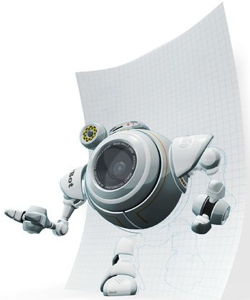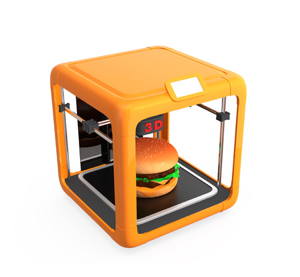"Focus on obstacles, and all you will find is more obstacles..."

Emerging Technology Trends
The World Economic Forum‘s Global Agenda Council on Emerging Technologies regularly identifies the most promising technology trends.
Apparently, these can help to deliver growth for decades to come.
Be amazed by this list of the trends they have noted for the past few years… (click the headings below to view their detailed reports) Note that 2016 is the latest report at time of publication.
2016 Technology Trends
- Nanosensors and the Internet of Nanothings
Tiny sensors in the human body or in building materials, which can connect to the web! - Next Gen Batteries
Making large-scale power storage possible. Providing clean, reliable, 24/7 energy to entire villages. - The Blockchain
Have you heard of the distributed electronic ledger behind the online currency “Bitcoin”? Blockchain’s potential to change the way markets and governments work is emerging. - Two-Dimensional Materials
New materials made up of a single layer of atoms will change the world. Concrete, stainless steel, and silicon are clumsy and crude by comparison.  Autonomous Vehicles
Autonomous Vehicles
The potential of self-driving cars for saving lives, cutting pollution, boosting economies, and improving quality-of-life is driving their development.- Organs-on-chips
Miniature models of human organs – the size of a memory stick – allow researchers to see how organs behave. - Perovskite Solar Cells
New photovoltaic material is easier to make, can be used virtually anywhere and generates power more efficiently. - Open AI Ecosystem
Smart digital assistants will know when you’re stressed, tired or hungry. - Optogenetics
Delivering light deeper into brain tissue could lead to better treatment for people with brain disorders. - Systems Metabolic Engineering
Manufacturing chemicals better and more cheaply by using plants rather than fossil fuels.
2015 Technology Trends
- Fuel cell vehicles
Zero-emission cars that run on hydrogen. - Next-generation robotics
Advances in robotics are making human-machine collaboration a reality.  Recyclable thermoset plastics
Recyclable thermoset plastics
New plastic can cut landfill waste.- Precise genetic-engineering techniques
Better crops with less controversy. - Additive manufacturing
The future of making things, from printable organs to intelligent clothes. Digital templates to build 3D shapes. - Emergent artificial intelligence
What happens when a computer can learn on the job? - Distributed manufacturing
The factory of the future is online – and on your doorstep. Products manufactured close to the final customer. - Sense and avoid’ drones
The next step in drone technology – machines that fly themselves. - Neuromorphic technology
These computer chips can mimic the human brain. - Digital genome
Your genetic code on a USB stick!
2014 Technology Trends
 Body-adapted Wearable Electronics
Body-adapted Wearable Electronics
Beyond wearables like wristbands or clip-on devices, these ones can adapt to the human body’s shape.- Nanostructured Carbon Composites
Reducing the weight of new cars. Lighter cars use less fuel, increase the efficiency of moving people and goods, and reduce greenhouse gas emissions. - Mining Metals from Desalination Brine
No longer is the brine from desalination a waste product. It’s now a resource to be harvested for valuable materials. - Grid-scale Electricity Storage
There are signs that a range of new technologies is getting closer to cracking this challenge. - Nanowire Lithium-ion Batteries
Helping transform the electric car market and allow the storage of solar electricity at the household scale. - Screenless display
Projecting images directly onto a person’s retina! ? - Human Microbiome Therapeutics
Developing new treatments for serious diseases and improving general healthcare outcomes. - Brain-computer Interfaces
The ability to control a computer using only the power of the mind!
2013 Technology Trends
- Online Electric Vehicle (OLEV)
Electric vehicles that can be charged while stationary or driving, removing the need to stop at a charging station.  3-D printing and remote manufacturing
3-D printing and remote manufacturing
Creating solid structures from a digital computer file. Objects can be printed remotely in the home or office.- Self-healing materials
These have the ability to automatically repair damage caused by mechanical usage over time. - Energy-efficient water purification
New technologies that slash energy usage while purifying water. - Carbon dioxide (CO2) conversion and use
Converting unwanted CO2 into liquid fuels or chemicals in low-cost, modular solar converter systems. - Enhanced nutrition to drive health at the molecular level
Pure human dietary proteins aid in muscle development, managing diabetes or reducing obesity. - Remote sensing
Sensors that monitor bodily functions remotely, and trigger a medical response if needed.
Well… some of those sound very interesting!
Others?
Well they just freaked me out ?
And you’re not plugging anything into my retinas!!!
« COL’s New Job Guide ReleasedMaybe Today Might Be Different… »

 Home
Home